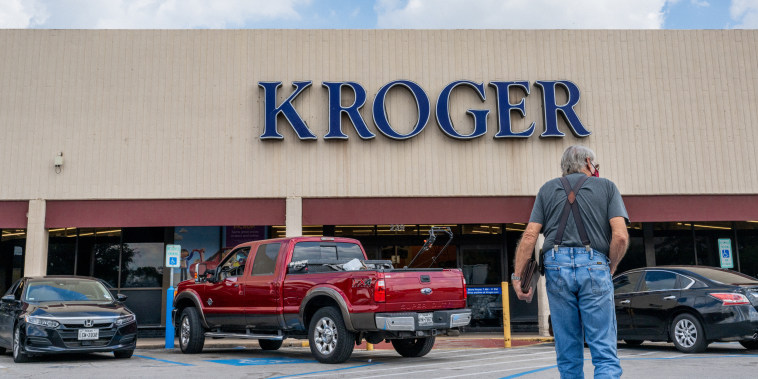In a strategic and calculated move targeting the grocery retail sector, the Biden administration has taken legal action to thwart the proposed merger between supermarket giants Kroger and Albertsons. This development marks a critical moment in the ongoing debate over market competition and antitrust regulations in the United States.
The proposed merger between Kroger and Albertsons, two of the leading supermarket chains in the country, has sparked concerns about potential negative impacts on consumer choice, pricing, and overall market competition. By moving to block the merger, the Biden administration is signaling its commitment to enforcing antitrust laws and safeguarding a competitive marketplace.
Antitrust regulations are designed to prevent monopolistic practices and promote fair competition in the marketplace. In this case, the merger between Kroger and Albertsons would consolidate significant market power in the grocery retail sector, potentially reducing competition and limiting choices for consumers. By filing a lawsuit to block the merger, the Biden administration is taking a stand against potential monopolistic behavior and seeking to protect the interests of consumers.
The decision to sue to block the Kroger-Albertsons merger reflects a broader shift towards more robust antitrust enforcement in the United States. With growing concerns about the concentration of market power in the hands of a few corporate giants, regulators are increasingly scrutinizing proposed mergers and acquisitions to ensure that they do not harm competition or consumers.
This legal action also highlights the complex and often contentious nature of antitrust issues in the modern economy. As businesses seek to grow and expand their market reach, regulators must strike a delicate balance between promoting innovation and competition while preventing harmful monopolistic behavior. The case of the Kroger-Albertsons merger exemplifies the challenges and complexities involved in regulating large-scale corporate transactions.
Looking ahead, the outcome of the legal battle over the Kroger-Albertsons merger will have far-reaching implications for the grocery retail sector and the broader business landscape. Whether the merger is ultimately allowed to proceed or blocked by regulatory intervention, the case serves as a critical test of the Biden administration’s commitment to enforcing antitrust laws and preserving a competitive marketplace for consumers.
In conclusion, the Biden administration’s lawsuit to block the Kroger-Albertsons merger underscores the importance of robust antitrust enforcement in ensuring fair competition and consumer choice. This legal action represents a significant step in the ongoing debate over market concentration and regulatory oversight, with implications that extend far beyond the grocery retail sector. As the case unfolds, it will be closely watched by stakeholders across the business community and beyond, shaping the future of antitrust regulations in the United States.
